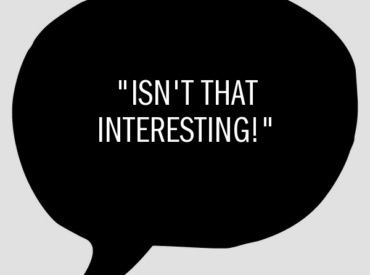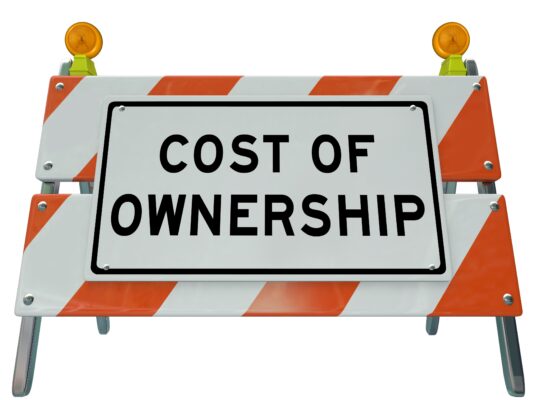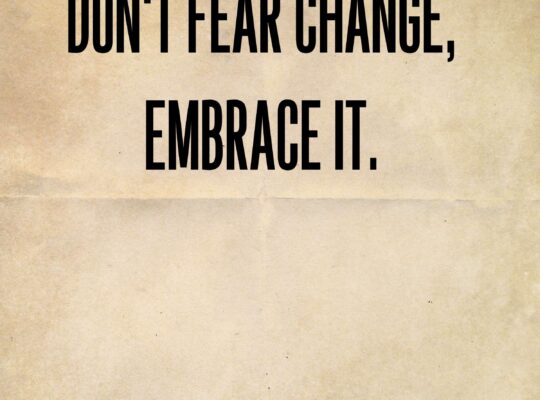“Expect the unexpected.” Good advice said a wise person. However, many of us can’t do this. We want to plan. We want to speculate. We want to anticipate, possibly leading to fear and anxiety.
Despite our best efforts, things don’t always go as we planned. Our hopes and dreams get dashed. Our expectations get crushed. We get thrown off our game. So, expect nothing. If it happens, great, if it doesn’t, great.
When Things Don’t Go According to Plan
It’s wise to have your strategy in your back pocket so if something happens you know what you’ll do. Just don’t expect things to go down the way you think they might. Or at all. Expect nothing.
When things don’t go as we imagined often our reaction is, “I didn’t see that one coming.” Hopefully after that we don’t get paralyzed, we move forward. That’s why Plan B is important.
If we plan everything out and assume it will happen and it doesn’t, then what? It can lead to disappointment. Anger. Frustration. Sadness. It’s easy to go there.
To avoid those uncomfortable feelings, it’s best to adopt the attitude of, “Que sera, sera,” whatever will be, will be. Let it unfold. Then see where you need to go. Even Plan B may not work so have a Plan C too. Or come up with it on the fly if you’re a more spontaneous person.
This may run counter to manifesting advice of expecting what you want to happen and it will. It is productive to expect it to happen, but sometimes it doesn’t. Some things are out of our control. In reality the best manifesting advice is to expect it to happen, then detach. If we hold on too tightly, that’s when things can go awry. And lead to disappointment. Once our negative feelings set in, it can mess with our manifesting mojo. Or cause us to give up.
When People Don’t Act Like We Expect
Examples of expectations gone wrong in everyday life happen all the time. Don’t expect someone will do something like clean up their mess. Sometimes, for whatever reason, people don’t. Stuff happens. Or they’re lazy. Request their action nicely or do it yourself. Either way, try not to get mad. If you see someone has a reputation for that, keep that in mind. Their past behavior proves not to expect them to clean up. You can hope for it, but don’t complain about it, just clean up or find another solution.
If you were talking to someone and all of the sudden, they turn and walk away with no warning, same thing, don’t get upset. Maybe they had to use the bathroom urgently. Maybe they had to write something down before they forget. Inquire what happened, or wait patiently for their return. Getting mad at them won’t solve anything. You didn’t see it coming, but it happened.
The same is true with boyfriends and girlfriends. We go out on a date, we have a great time, then what do we do? We expect them to reach out. And they don’t. Then what? We’re disappointed, hurt, confused. Don’t expect them to take the lead, even if they said they would. Expecting someone to do something is like forcing them to – it doesn’t work. They will if they want to or they won’t.
Then you have two options. Call them or let it go. Stewing about it, bad-mouthing them to your friends, or stalking them doesn’t pay. It doesn’t solve anything. They may have a good reason for not calling or they may be a flake. If they have a good reason, then hopefully in time they’ll get back with you. If they’re a flake or a flatterer, then no great loss.
In the movie The Adjustment Bureau Matt Damon has a chance meeting with Emily Blunt on a city bus after their first encounter. Long story short he loses her phone number and has no way to contact her. In the hopes that he’ll run into her again he rides the same bus every day for three years. Eventually, it works and he spots her. His tenacity paid off. The point is he didn’t expect to see her, he hoped he’d see her. When he finally found her, he was overjoyed that his wish came true, not mad that it took three years to find her or mad because he expected it to happen sooner.
Expecting vs Hoping
What’s the difference?
A lot.
Hoping is wishing, dreaming, wanting something. It’s a subjective and emotional state of desiring something to happen even in the absence of evidence or logic. It feels good to have hopes and dreams as they provide a feeling of optimism, something to look forward to.
Expecting is a belief or anticipation of a future outcome based on experience or logic. It carries with it a sense of certainty or predictability. Expecting is focusing on what is likely to happen whereas hoping is focusing on what’s desired to happen.
Expectation can be a double-edged sword. On the one hand it can motivate and drive us toward reaching our goals as well as provide us with a sense of purpose pushing us forward. On the other hand, excessive, rigid or unrealistic expectations can lead to disappointment, frustration and a sense of failure if things didn’t go as planned.
Imagine if you didn’t get a promotion at work that you expected. Then what? You get mad. Or deflated. You might even make a snap decision to quit. None of which serves any purpose and can lead to regrets.
What if instead you hoped for it? Dreamed about it? Put it on your vision board, then let it go? In this case you’re believing in the possibility of a positive outcome. You’re not attaching to it. The attachment is what gets us in the end. We desperately want something to happen, then it doesn’t. That’s a form of control.
When we expect something, it can be driven by a sense of control. Not always, but it can be. Rigid people expect people to behave a certain way because they think they should or it feels safe to think they will. The feeling safe part is the control. And when it doesn’t happen, their sense of control is shattered. They lost it.
What To Do About It
To avoid these negative feelings, stop striving for unattainable goals. Let go of unrealistic expectations. People don’t always behave the way we want them to. Things don’t always go as we planned. That’s life. Have realistic expectations, make plans. Let go of the attachment.
Then infuse it with hope sprinkled with something to look forward to. Use hope to give your life meaning, inspiration and a sense of comfort. That feels better, doesn’t it?
DEVELOP YOUR INTUITION: If you want to learn how to listen to it, how to talk to it and how to trust it by CLICKING
HERE.
Once you start listening to your intuition, you’ll be amazed how much your life clicks into place. Then you can truly start enjoying yourself. CLICK HERE to find out more!






